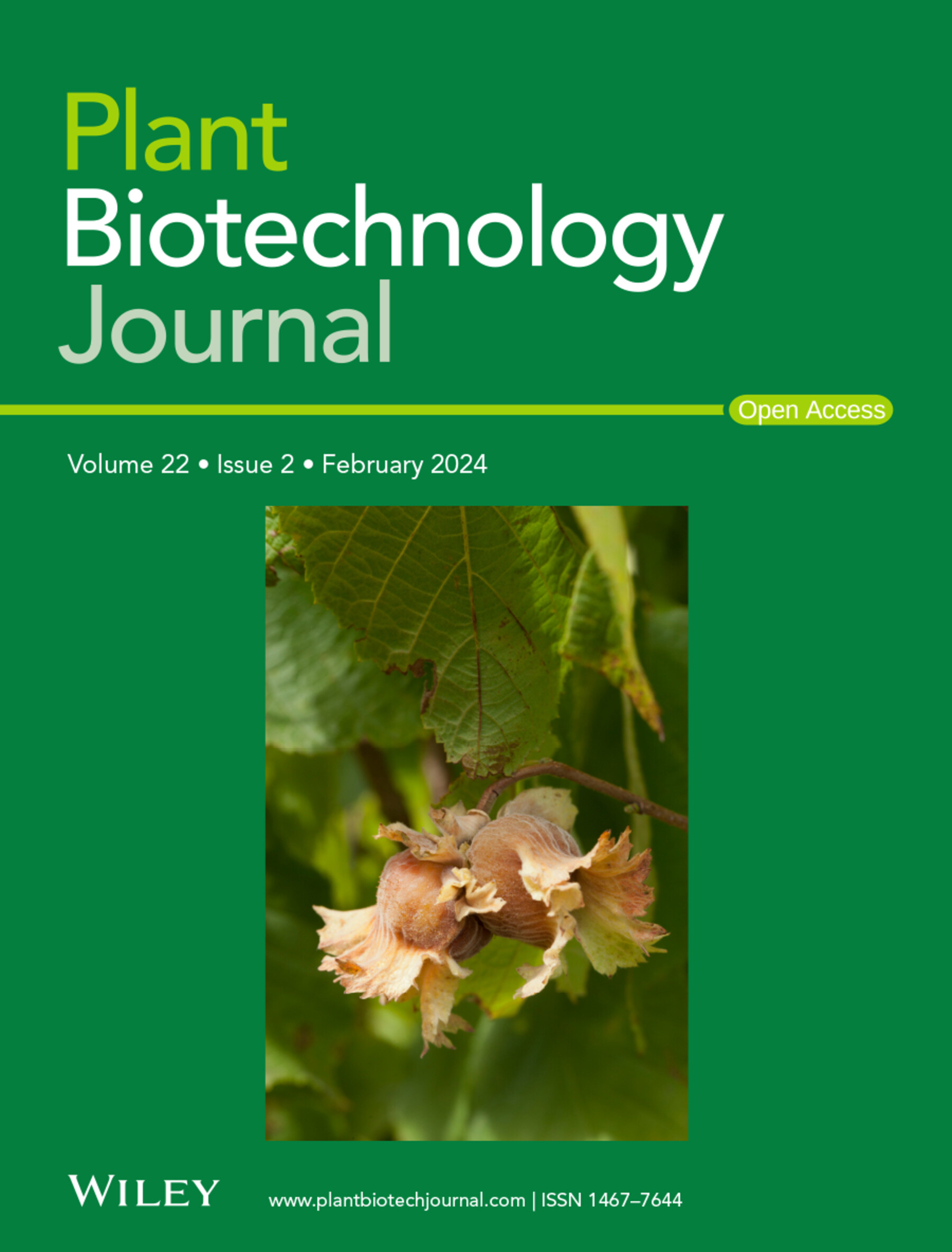几丁质土壤改良剂通过增强模式触发免疫触发植物系统抗病
IF 10.5
1区 生物学
Q1 BIOTECHNOLOGY & APPLIED MICROBIOLOGY
引用次数: 0
摘要
几丁质引发局部和系统的植物免疫反应,使其成为可持续抗病的有希望的治疗方法。然而,几丁质在植物中诱导全身效应的确切分子机制尚不清楚。在本研究中,我们研究了螃蟹几丁质片(以下简称几丁质)对不同植物模式触发免疫(PTI)和系统抗病的影响。我们发现,土壤改良剂甲壳素增强了PTI和对紫丁香假单胞菌pv的抗病性。对莴苣、番茄和拟南芥中的番茄DC3000,以及引起小麦白粉病的小麦蓝灰菌(Blumeria graminis f. sp. tritici, Bgt)的抗性。通过在拟南芥中进行微嫁接,我们证明了这种系统效应依赖于根系中活性几丁质感知。我们还发现,诱导全身抗性(ISR)和模式识别受体(PRRs)/辅助受体参与了几丁质土壤改进剂引发的全身效应,而非全身获得性抗性(SAR)。这些系统效应与几丁质土壤改良时远端叶片中关键PTI调控因子的转录上调有关。值得注意的是,几丁质引发的全身免疫与土壤或几丁质薄片中存在的微生物无关。总之,这些发现有助于更好地理解几丁质触发的系统性免疫,从根部的活性几丁质感知到叶片中PTI的增强,最终引发植物对病原体攻击的增强防御反应。我们的研究为几丁质土壤修复及其诱导免疫的分子机制提供了有价值的见解,并强调了其在可持续作物保护策略中的潜在应用。本文章由计算机程序翻译,如有差异,请以英文原文为准。
Chitin Soil Amendment Triggers Systemic Plant Disease Resistance Through Enhanced Pattern‐Triggered Immunity
Chitin triggers localised and systemic plant immune responses, making it a promising treatment for sustainable disease resistance. However, the precise molecular mechanisms underlying chitin‐induced systemic effects in plants remain unknown. In this study, we investigated the effects of soil amendment with crab chitin flakes (hereafter chitin) on pattern‐triggered immunity (PTI) and systemic disease resistance in various plant species. We found that soil amendment with chitin potentiates PTI and disease resistance against the bacterial pathogen Pseudomonas syringae Blumeria graminis f. sp. tritici (Bgt) , which causes powdery mildew in wheat. Using micrografting in Arabidopsis, we demonstrated that this systemic effect is dependent on active chitin perception in the roots. We also showed that induced systemic resistance (ISR) and pattern‐recognition receptors (PRRs)/coreceptors, but not systemic acquired resistance (SAR), are involved in the systemic effects triggered by chitin soil amendment. These systemic effects correlated with the transcriptional upregulation of key PTI regulators in distal leaves upon chitin soil amendment. Notably, chitin‐triggered systemic immunity was independent of microbes present in soil or chitin flakes. Together, these findings contribute to a better understanding of chitin‐triggered systemic immunity, from active chitin perception in roots to the potentiation of PTI in the leaves, ultimately priming plants to mount enhanced defence responses against pathogen attacks. Our study provides valuable insights into the molecular mechanisms of chitin soil amendment and resulting induced immunity and highlights its potential use for sustainable crop protection strategies.
求助全文
通过发布文献求助,成功后即可免费获取论文全文。
去求助
来源期刊

Plant Biotechnology Journal
生物-生物工程与应用微生物
CiteScore
20.50
自引率
2.90%
发文量
201
审稿时长
1 months
期刊介绍:
Plant Biotechnology Journal aspires to publish original research and insightful reviews of high impact, authored by prominent researchers in applied plant science. The journal places a special emphasis on molecular plant sciences and their practical applications through plant biotechnology. Our goal is to establish a platform for showcasing significant advances in the field, encompassing curiosity-driven studies with potential applications, strategic research in plant biotechnology, scientific analysis of crucial issues for the beneficial utilization of plant sciences, and assessments of the performance of plant biotechnology products in practical applications.
 求助内容:
求助内容: 应助结果提醒方式:
应助结果提醒方式:


